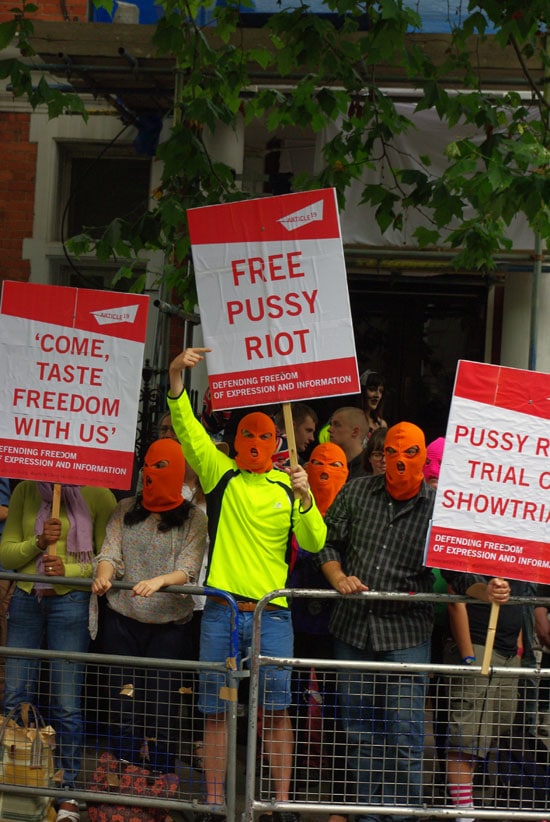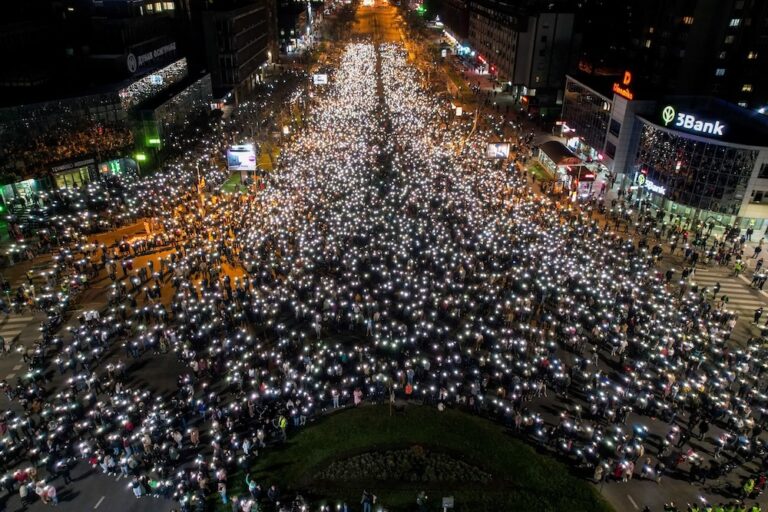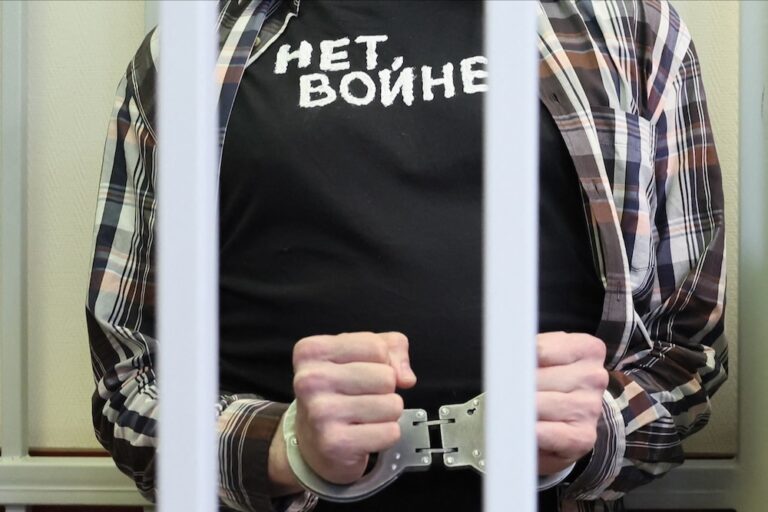Three members of the punk band Pussy Riot were sentenced to two years in jail for "hooliganism", in a case IFEX members say is a blow to free expression in Russia.
Three members of the Russian punk band Pussy Riot were each sentenced to two years in jail last week for hooliganism motivated by religious hatred, in a case IFEX members say is a blow to free expression inside Russia.
Nadezhda Tolokonnikova, 22, Maria Alyokhina, 24, and Yekaterina Samutsevich, 30, were arrested in March after performing an anti-Putin “punk prayer” inside Moscow’s Christ the Saviour Russian Orthodox Cathedral. They say they were highlighting the close relationship between the Orthodox Church and President Vladimir Putin, according to PEN International.
IFEX members were quick to condemn the verdict.
Index on Censorship’s chief executive Kirsty Hughes said, “In Putin’s Russia, free expression has become a crime…. The Pussy Riot verdict is the latest indication that Vladimir Putin’s Russia does not respect human rights and is sliding backwards to dictatorship.”
ARTICLE 19 executive director Agnès Callamard said, “The manner in which the three members of Pussy Riot protested should be seen in the context of the limited opportunity for freedom of expression and freedom of assembly in Russia.”
During the trial the women were locked in a defendant’s cage for more than 10 hours a day, according to Human Rights Watch.
PEN International, which monitored the trial, said the defence was repeatedly denied the right to make objections, to call their witnesses and at times even to speak.
And today (20 August), Reuters reports that Russian police are searching for other members of the group.
PEN International believes that the women were treated especially severely because of the lyrics of the song, which they performed in the form of a prayer addressed to the Virgin Mary.
The case has caused widespread outrage in and outside Russia.
Dozens of protesters were arrested outside the court, including chess player Garry Kasparov and opposition leader Sergei Udaltsov, reports the BBC. Protests in support of Pussy Riot were held around the world in New York, London and other cities. Paul McCartney, Madonna, and Björk are among the dozens of stars who have issued messages of support, reports the Guardian.
Human Rights Watch’s Tanya Lokshina said that in the 20 years that the Human Rights Watch office has been operating in Russia, they have never seen such an intense campaign around a particular case.
“The media outcry, the staggering level of public interest, [and] the list of celebrities speaking up in support of the three women in Russia and the West have been truly unprecedented,” she wrote in The Independent.
“Throughout Mr. Putin’s time on the world political stage, Russian and international human rights groups have flagged the growing loss of independence of the judicial system and the dramatic curtailing of freedom of expression in the country. It seems the Pussy Riot case has helped crystalise these two issues for the international community,” she added.



